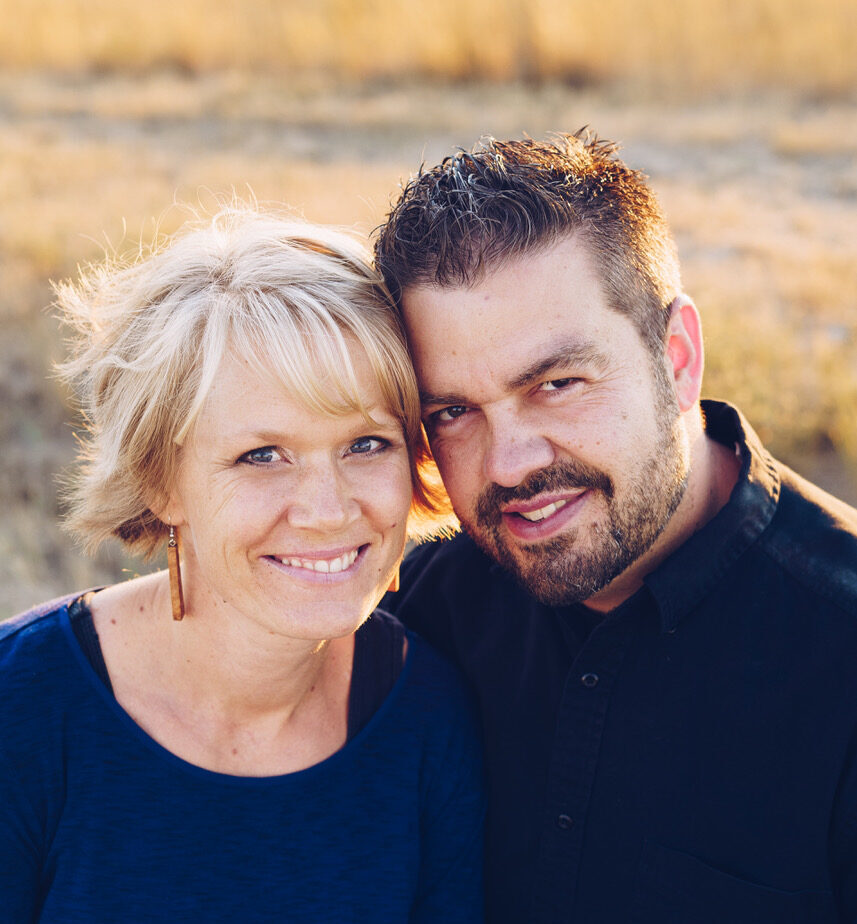The Righteous Quest God Hates
We hate this world’s evil, and hate even more the villains we hold responsible. We may believe that wars and turmoil are sparked by cold, calculating despots who care nothing for right and wrong. But I’m wondering if the most dangerous people in the world are those passionate about the rightness of their cause, willing to lay down their life to impose their vision of the way things should be.
I believe the great disruptors of peace and unity, the real cancers to churches and communities, are not men who have knowingly signed a pact with the devil, but men who believe they have the truth and are crusaders for righteousness. No one thinks he is the problem, or that he is spreading poison. It might be obvious to those around him that he is the divisive man Paul warned to admonish twice, and “then have nothing to do with him.” (Titus 3:10-11)
Yet the man who is stirring up division will believe that he is simply “standing with the truth,” and that he is being “persecuted for righteousness’s sake.” Meanwhile, he has become someone who God hates – one who sows discord among brothers! (Proverbs 6:19) This should sober us all to self-examination. Wouldn’t it be terrifying to discover that the Almighty God of the universe hates what you are doing?
In every conflict and war, there will be opposing sides – people who believe they have truth on their side and that truth is worth dying for. Each side simply can’t fathom the stupidity or ignorance or wickedness of the other. But at least one side is deceived at some level. In your conflicts and crusades, how do you know that you are in cause of Christ? How do you know that you are not the divisive person or the one sowing discord?
How much does God care about unity and peace?
Ever since the Reformation, it seems that Protestants, especially those of us with fundamentalists roots, are leery of talk about peace and unity: “Truth is supposed to divide. Truth is more important than relationships. Those who talk about unity are suspect liberals leading us down the slippery slope of ecumenism!”
I agree that when truth is sacrificed in the quest for unity, spiritual life is lost. Unity can only be achieved when both sides are indwelt by the Spirit of Lord, and are walking in the light of His truth. But over-reaction leads to our being defined by what we are against. This results in blindness to other important facets of the truth. In our quest to seek truth and doctrinal purity, we have lost sight of an issue that is very important to God – harmony and unity in His body.
Look carefully at some of these passages:
Complete my joy by being of the same mind, having the same love, being in full accord and of one mind. (Phil 2:2)
Finally, all of you, have unity of mind, sympathy, brotherly love, a tender heart, and a humble mind. (1 Peter 3:8)
I appeal to you, brothers, by the name of our Lord Jesus Christ, that all of you agree, and that there be no divisions among you, but that you be united in the same mind and the same judgment. (1 Cor 1:10)
Finally, brothers, rejoice. Aim for restoration, comfort one another, agree with one another, live in peace; and the God of love and peace will be with you. (2 Cor 13:11)
I therefore, a prisoner for the Lord, urge you to walk in a manner worthy of the calling to which you have been called, with all humility and gentleness, with patience, bearing with one another in love, eager to maintain the unity of the Spirit in the bond of peace. (Eph 4:1-3)
So then let us pursue what makes for peace and for mutual upbuilding. (Rom 14:19)
My hermeneutical skills may be suspect, but it seems pretty obvious from this sampling that unity is very important to God.
But what about truth? Isn’t truth more important to God than unity?
Are truth and unity mutually exclusive?
It can sure seem like it at times. Most people who are cut off from someone would be quick to reassure you that they would be the first to seek unity as soon the other party repents of their error and accepts the truth.
Truth is vital to true unity. We are to be united in Christ. To be united in error apart from Christ is hell!
But we need to be so careful when we sacrifice unity for truth. Why? Because what we believe to be true is often false. Both sides on opposing issues are convinced they are correct and the other side is deceived. But how do we know who has the truth?
Some people answer, “That’s easy: whichever side has the Bible on their side! The Bible can’t err, so if the Bible is on my side, I can be confident that I am in the right.”
But this assertion does not take seriously enough the Bible’s teaching on how we humans are prone to error, and it ignores our remarkable talent to unknowingly twist the scripture to support our conclusions.
There have been countless church splits and broken fellowship over issues where both sides were so convinced that the Bible was clearly on their side. “If the opposition would only humble themselves, they too would see the issue the same way!”
So what should we do when we find ourselves in disagreement on an issue? Should we seek unity at all costs?
The first thing we must do is soberly acknowledge how much God desires unity between us.
Jesus, in the throes of agony in Gethsemane, pleaded to His Father that his church would be one. When you fight and hurt each other and callously cut off fellowship, never forget the pain you are bringing Christ!
He loves and cherishes his Body, His bride. Watching his wife suffer is one of the most painful experiences a man can endure. But we become so blinded by our pride and self-righteousness that we ignore the misery we inflict with our divisiveness and our willingness to kill relationships over our interpretation of the truth.
Secondly, we must practice the biblical preconditions before we crusade for our cause:
We must be quick to hear, slow to speak, slow to anger because our wrath does not achieve the righteousness of God. (James 1:19-20)
We must lament, mourn and weep over our sin, and humble ourselves in the sight of God, to ensure that God himself is not in opposition to us because of pride. (James 4:6-10)
We must remove the log in our own eye before we can hope to see other’s condition clearly. (Matt 7:3-5)
We must prayerfully examine ourselves to make sure we are free from any self-seeking or bitter envy. These sinful passions are so blinding that our quest for truth will instead be only “boasting and lying against the truth”, and “confusion and every evil thing will be there.” (James 3:14-16)
Acknowledge that in this time before Christ returns, it is important that we suspend judgement because Christ sees everything clearly and will bring every deed and motive into the light when he comes. (1 Cor 4:5)
Sinful passions such as pride, bitterness, envy, selfish ambition, and anger wield a blinding influence on us. We have enough trouble seeing truth clearly, never mind when our emotions get involved and start dictating the conclusions we can and can’t reach.
We see ourselves as coolly rational beings, objectively seeing the truth. In reality, our emotions hold powerful sway over our interpretation of the facts and actions of others.
Emotional factors create a phenomenon known as “motivated reasoning.” It works like this… Emotions to Brain: “This is the conclusion I want! Use whatever evidence or logic you need to – just make sure you come up with this conclusion!” The more anger, hurt, or pride get involved, the more enslaved our minds become to these emotional forces creating self-deception. As the delusion spins out of control, both sides of a conflict become even more entrenched, convinced of their own rightness but more blinded than ever to the truth.
As you read this, you may be nodding, as certain people come to mind who have clearly demonstrated the sequence I described. What will not become clear, unless the Spirit of God works in your heart, is how you have been guilty of the exact same thing!
Unity matters – not because truth is unimportant, but because it is of utmost importance.
We need each other to see truth clearly. Alone, we are so quick to yank truth out of balance, taking our conclusions to unbiblical extremes.
Making unity a priority requires holding our conclusions lightly and maintaining a willingness to learn. James explains what the truly righteous quest looks like:
“But the wisdom that is from above is first pure, then peaceable, gentle, willing to yield, full of mercy and good fruits, without partiality and without hypocrisy. Now the fruit of righteousness is sown in peace by those who make peace.” (James 3:17-18)
If you are caught up in forces that are dividing you from other Christians, it is vital to remember you are in a war, but not with Christians who disagree with you or are criticizing you. You’re battling demonic spiritual hosts who hate Christ with a violent passion.
Satan loves to sow discord and divide brothers and sisters because he knows the weakness it brings to the body, the pain this inflicts on Christ, and the dishonour it brings His name.
I doubt that any of us really want to disgrace our Savior or bring misery into the body. But we forget our weakness: the tendency to be so convinced of our rightness that we actually believe that “willingness to yield” (a mark of godly wisdom) is compromise that will dishonour God!
So we fight and slander and sow discord (all in a spirit of diplomatic humility, of course). We piously anticipate the day when our name will be cleared and all heaven will declare our righteousness. But God looks down and weeps.
Seek God, seek truth, but cast out the pride that tells you that you don’t need other Christians. Seek unity and realize that fellowship does not mean complete agreement or approval of what others do or believe. We are all works in progress. We all believe errors and have sinful corners of our hearts. We need to love mercy and be quick to forgive, to offer a sampling of the grace God has overwhelmed us with.
In almost every split and divorce, there is an inability to see things from the other person’s perspective. When both sides are focused on being understood and agreed with, the conflict can go on forever. Do all you can to understand the other person. Show them the grace of non-defensive listening.
Let’s make diligent war on the enemy of our souls and seek unity and reconciliation wherever we can. Christ endured humiliation and alienation so that our relationships could be healed. He deserves nothing less than our utmost efforts to achieve the peace and unity He longs for.
Related:
A Plea For Intellectual Humility
Brain Tricks: Simple Ways to Exploit Your Human

